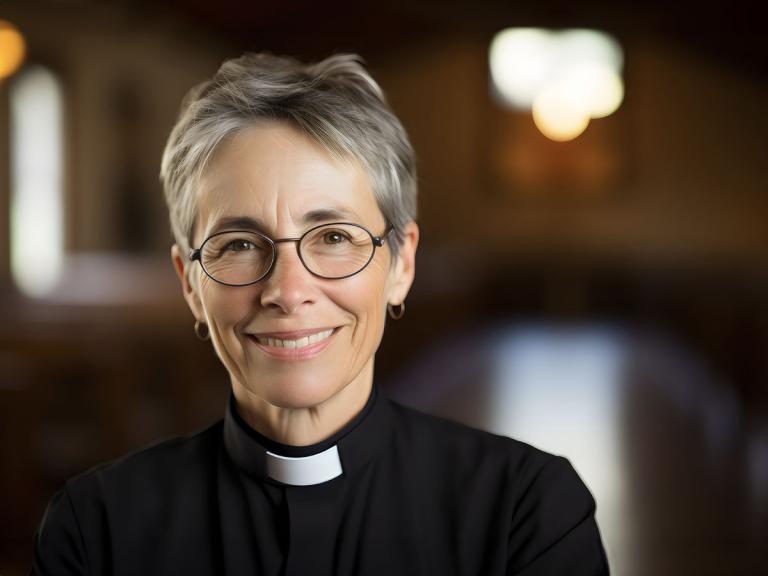
For over a decade, Ellie Hidalgo has been campaigning to expand the role of women in the Catholic Church. The Miami woman is co-director of a nonprofit, Discerning Deacons, which invites other Catholics to consider ordaining women as deacons, a clergy role that has always been opened to married men.
That would allow women, for the first time in centuries, to preach the Gospel, preside at baptisms, direct charitable services, and perform other duties long confined to males. From her past work, she knows the value women can add to the church. As a pastoral associate at a Jesuit parish near downtown Los Angeles, she worked with immigrant women from Central America and Mexico. In times of need, Hidalgo, who is trained in pastoral theology and fluent in Spanish, was called on to preach, assisting a priest who had issues communicating with congregants.
She’s also met with Catholic indigenous women in the Amazon region of Brazil who are on the front lines of defending land and human rights. Hildalgo, who now attends Our Lady of the Divine Providence in Sweetwater, recognizes that her devout Cuban grandmothers would never question why only men could serve pastoral roles, but that’s not the case in conversations with her nieces. They want to hear someone with “their own lived experience, from somebody who’s a sister or a daughter or a mother.” Now, for the first time in years, Hidalgo can envision a day when the church might actually open some leadership doors to women.
Her hope springs from attending the Synod of Bishops, a monthlong assembly of church leaders in Rome that can shape future policy for the Catholic Church. The question of involving women in church leadership was widely discussed during the October gatherings, with a culminating report sending favorable signals for lifting some gender barriers in the future.
Although no concrete decisions were made this year, the tenor of discussions encouraged Hidalgo and others who share her goal for a more inclusive church. On the issue of ordaining women as deacons, the report called for continued research and discussion to be taken up at next year’s session. “We were very pleased that that made it in there,” Hidalgo said. “It’s a very big step forward.” The synod included 480 members appointed by Pope Francis from all continents. They participated in a process the church calls “conversations in the spirit.” It involved listening, praying and drawing up recommendations for the pope.
Hildago said, “What is the Holy Spirit asking of the church in the third millennium? What are the needs? In these times, where we see a lot of profound woundedness in the world, more wars, famine and, drought and tons of migration — these were some of the topics that were being taken up. What is causing all that, and how is the church to respond?” A synthesis report released by the pope appears to reflect a significant shift in centuries of resistance to putting women in leadership roles: “It is urgent to ensure that women can participate in decision-making processes and assume roles of responsibility in pastoral care and ministry.”
